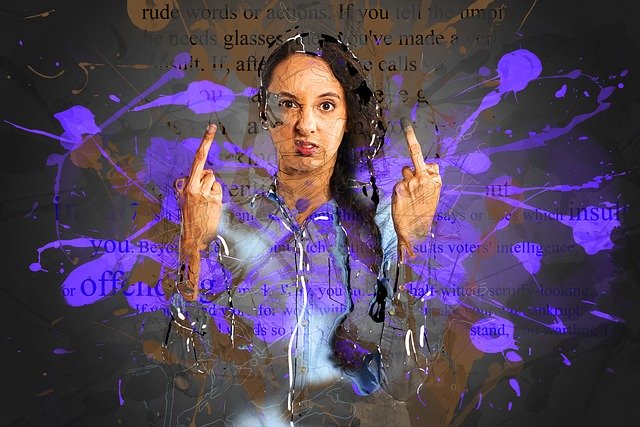 Submitted by Celesta Aquaria on
Submitted by Celesta Aquaria on

Image by Pete Linforth from http://Pixabay.com
I think most people would agree that the main problems of our day are: (a) the artificially dualistic, unfair sharp divide between those who have abundance, power and all the other desirable things in life, and those who don’t have enough of these things, and (b) the prevalence of anger and violence in the world of today. And obviously, the two may me very inter-related, but this article will focus on anger because it is a very misunderstood phenomenon and a seed that can grow into many things of which we don’t want the attached adverse consequences. Anger is certainly a problem for us to all deal with more effectively than we have been doing.
What is anger, what causes it and what can be done about it?
Anger is complicated.
Anger is not a pure emotion per se, but a by-product of a several other things like thoughts and feelings that interact fast and furiously in our heads and hearts. Common thoughts leading to anger can be:
· What is happening is outrageous and I don’t want this at all.
· Something needs to be done about this situation, but there doesn’t seem to be anything I can do.
· I am a victim unfairly and didn’t do anything to deserve being one.
· I know what is right, and this is very wrong.
· This hurts and must stop.
· I have a perfect right to get angry and act on it.
· If I don’t so something about this, it will just get worse.
Anger is also bundled up in other complex feelings that interact just as fast and furiously as our thoughts.
· Frustration.
· Fear.
· Discontent.
· Hopelessness.
· Hurt.
· Suspicion
· Unpleasant sensation.
We really don’t have a complete understanding of which causes or which or how one affects the other in the mysterious thought-feeling-behavior sequence. Regardless, the problem is that all these thoughts and feelings can drive angry behavior into violence and we all know how difficult that is to stop once started. Understanding what causes anger can help in mitigating most needless anger and its dire consequences.
What causes anger?
The quick answer here is that angry thoughts and feelings emerge when there is an inevitable win-lose scenario that comes about from any of the three main conflicts in life that challenge us all. These main conflicts are: (a) Us against life (b) Us against others, and (c) Us against ourselves. What fuels these angry thoughts and feelings inside us is when the other side in our conflicts makes us defensive by trying to take away some of the basic needs we are all born with—freedom, equality, acceptance, and empathy, and others we have learned to value such as spontaneity, honesty and tentativeness.
The spread of anger by such defensive communication is the best access point for making improvement and curbing anger. All anyone needs to do is to practice expressing the common values of freedom, equality, empathy, acceptance, tentativeness, and spontaneity. That takes the wind out of the sails of anger, just like owning, apologizing, paying penitence and correcting a mistake does.
What can be done about anger?
Trying to control angry thoughts and feelings usually doesn’t work very well. What can work is taking the time to understand the dynamics of your own anger and then better managing how your mouth and hands express it. We know from sound research that neither a passive or an aggressive reaction meets with success. In fact the only thing that has any real chance of succeeding is somewhere in between those approaches. This middle ground is called assertiveness, where you stand up for what is making you angry in such a way that it gets heard as intended, without adding more anger to the situation.
A certain amount of anger is righteous and inevitable, but we can all do our part in starting to stop the violent consequences of needless anger. We can all contribute with more assertive, supportive communication to cooperate more in resolving conflicts for a win-win outcome, which will eventually heal the painful divide that we all want healed.
Bill Cottringer
http://www.authorsden.com/visit/viewarticle.asp?catid=35&id=78109
- 387 reads